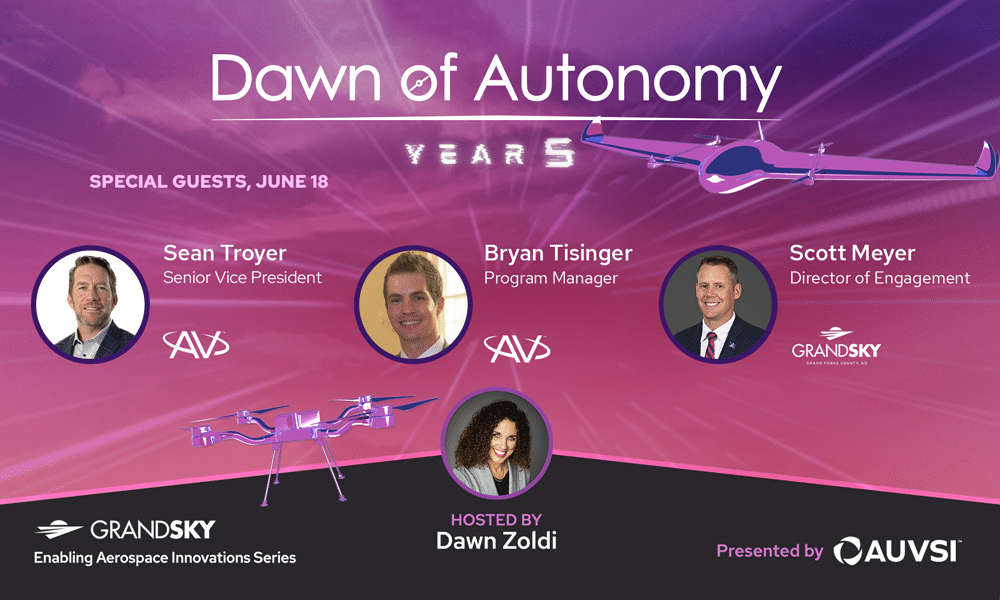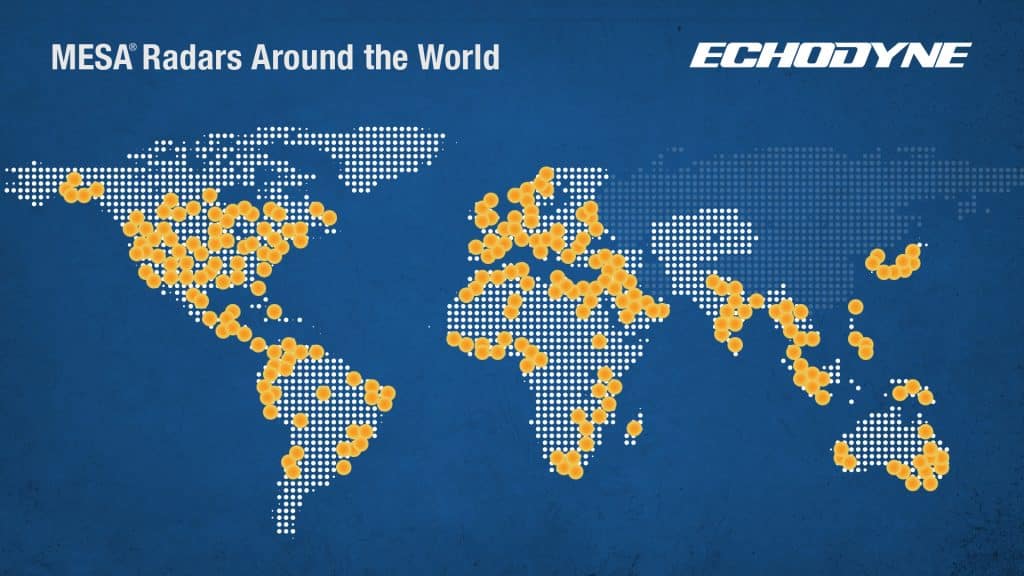Fitting In: People, Privacy, and Public Acceptance of Unmanned and Autonomous Systems
August 19, 2021 | Jim Romeo

XPONENTIAL 2021 ended its last day with a host of panel discussions about the impending challenges for autonomous and unmanned systems to fit in with our society and gain public acceptance. The innovation of autonomous vehicles and systems is exciting and disruptive. However, full social acceptance and adoption has specific challenges.
Developing a Workforce for Tomorrow’s Industry
One of these challenges is the integration of a diverse workforce and incorporate the human capital necessary to advance the industry and put autonomous technology into action. A panel of leaders from industry, non-profits, and higher education convened to discuss the challenges of recruiting, training, upskilling, and developing a workforce prepared to meet the demands and needs of the industry as it continues to emerge.
Jonathan Beck, executive director for the National Center for Autonomous Technologies (NCAT), facilitated a panel on workforce development. He led off the discussion by stating that the diverse panel is one that is helping the autonomous technology industry take actionable steps to train and recruit and increase diversity across the workforce that interacts with and develops autonomous technologies.
Tiffany Howard is the director of transportation industry initiatives for Louisiana Community and Technical College System. She is attending AUSVI due to her work with TuSimple, which is involved in developing autonomous technology for trucking and autonomous freight delivery.
“We were able to engage with them significantly,” she says. Through one of Louisiana’s community colleges, she was able to work with TuSimple to stand up a certificate program for autonomous vehicle operators.
“TuSimple had just acquired a route to Louisiana,” she explained. “We hosted a webinar and through that webinar, we’ve got a lot of stakeholder engagement. From those discussions we hosted a wonderful event, and those things got a lot of attention. And now we’re planning and working on artificial intelligence and automation certifications that we hope to deploy very, very excited to be here.”
“Louisiana has over 16,000 miles of highway we have more than 12,000 bridges,” she says. “We were a significant player in the transportation infrastructure of the United States. They entered a partnership with the Louisiana Motor Transport Association – the leading trucking association for the state. We have about 280 plus trucking companies. We worked with them very closely. We wanted to understand what their pain point was. And there were some areas that education just couldn’t have a link. But there were some spaces that we could help them with. And when we realized one of their challenges was the driver shortage, but also driver quality, then we really wanted to do something.”
She said that simultaneously there was a growing interest and engagement in autonomous trucking. They were able to collaborate and work with the association and other leaders to develop a vision and define what the needs were that their efforts as educators and workforce development centers could be. It was a great exercise in community involvement and collaboration.
Dr. Paul Hsu is the founder and chairman of the HSU Educational Foundation based in his hometown of Fort Walton Beach, Florida. His organization formed a program called FieldWerx. It is a privately owned program that partners with the U.S. Air Force, who is engaged with much technology development right in his geographic region of Florida. The program demonstrated a public-private partnership and how it can be quite successful.
“It is a perfect example for public private partnerships,” says Dr. Hsu. “So, the public will do something, the private will do something, and then join them to do good for the community. I have a talked with an engineering student at Harvard. And I really believe that public private partnerships need to be in their curriculum. To me, that’s low hanging fruit. You want to start your own business. Yes, you need capital. But don’t forget, there’s another way to do this. It’s called public private partnership. If you can make sure that this is a win-win situation, you win, and the public wins, and even the student wins. That becomes a win-win-win. And a win-win-win is better than win-win.”
Exploring the Relationship of Security and Safety for Unmanned and Autonomous Systems
In addition to workforce development, engaging societal acceptance of autonomous systems has other challenges that sometimes raise concern. Social acceptance is sometimes met with concerns related to privacy, security, and safety.
The integration of unmanned systems into communities is still new to many. Its widespread use hinges on instilling confidence that privacy, security, and safety standards are not compromised. A panel of experts from law firms, academia, and government gathered to further explore the topic.
The discussion first explored the types of data and how its characterized and then evolved to data governance and how the amount and type of data can influence data privacy.
Deven Desai, associate professor and area Coordinator for law and ethics at the Georgia Institute of Technology, Scheller College of Business was one of the panelists. He spoke about his experience with data: “The issues I think come up once, the government comes knocking,” he says. “In 2008 I wrote a paper about embedded medical devices. What I put out was that they’re giving out a bunch of data. So that industry should be concerned. Who’s getting it?”
The panel discussed the importance of data governance and the fact that more data is becoming available. However, that data can be put to use for the common good. Dr. Wendy Okolo is a research Engineer and program manager at NASA.
She describes a common aviation incident data base that NASA accesses, which collaborates with the FAA and other entities to gather information and data about aviation incidents. It was recently augmented to include UAS incident data that may be submitted anonymously. The ownership of the data is not what is so important, but rather, the availability of the data so that it can be used to develop safer practices in the future.
“There’s no judgment whatsoever,” she says. “You’re fully anonymous. You give us researchers an idea of what it is going wrong, so that as we design, we can make these modifications as we think about safety and other medical problems on the ground. And we do this without really any knowledge of who you are, so we keep these things in mind when we design.”
Assured autonomy relies much on autonomy fitting in and gaining public acceptance. This means having the right workforce in place to do the job. It also means supporting the sector with a workforce that has been developed to meet the needs of the industry as autonomous technologies forge ahead.
As it does forge ahead, more data will become available. The governance of such data and all the privacy concerns that go with it will become a growing concern that all stakeholders – governments at all levels, private firms, researchers, academia, and many others – will need to come to grips with to best assure autonomy and its acceptance in the community at large.
- Industry News


